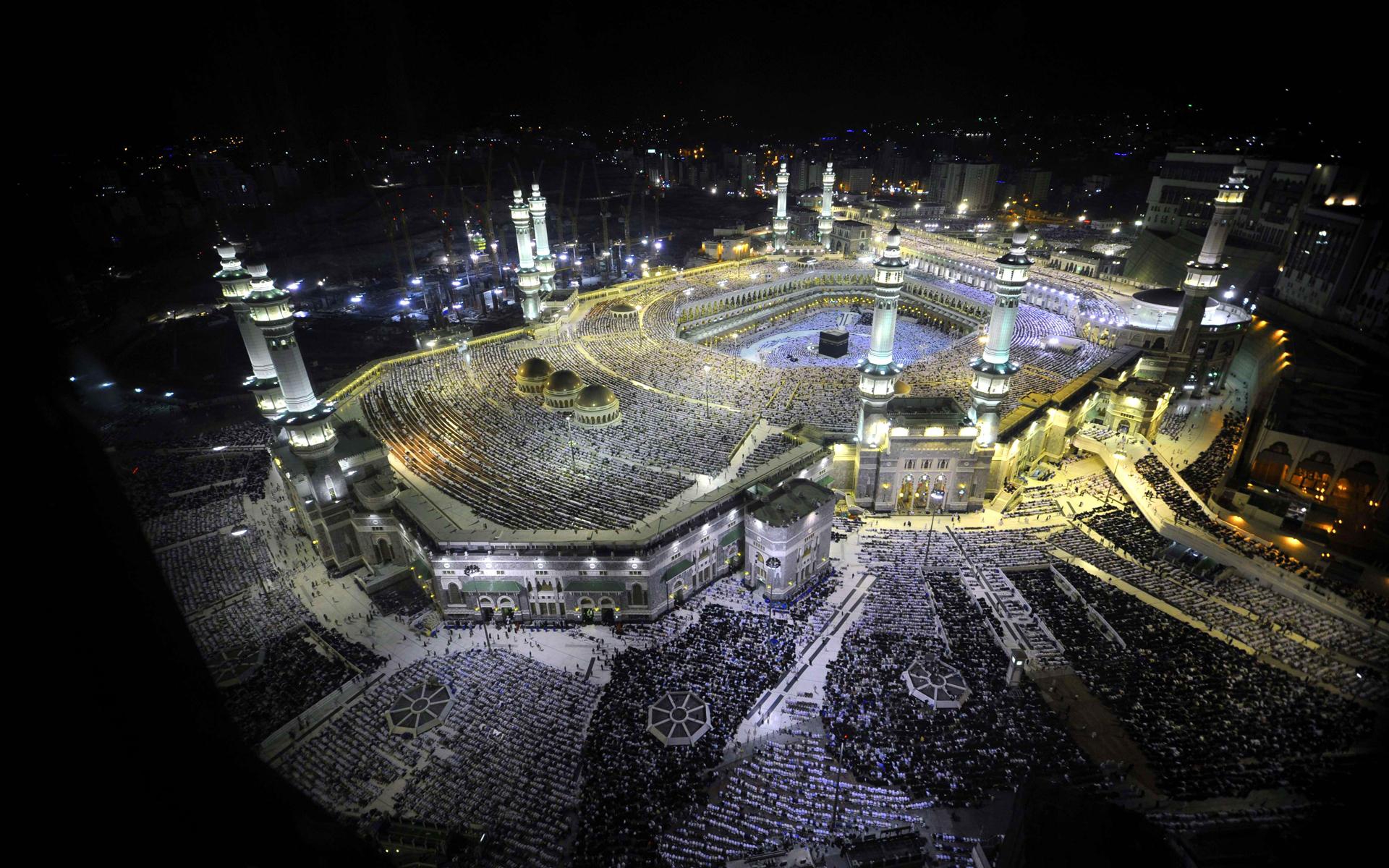بسم الله الرحمن الرحيم
Assalamu Alaikum.
Ah, Hajj. The Best of Journeys.
So many people yearn to go for Hajj. And so many others do get to go. Unfortunately, many of those who do go are completely oblivious to many aspects of Hajj.
When I went for Hajj and Umrah in 2003, I was one of those oblivious people. At that time, I really didn’t know much about Islam, let alone Hajj. I hadn’t even gone for Umrah before this time, so I was REALLY clueless about everything. All I knew was that we were supposed to go around the Kabah, stone some Shaytan (devil) thingy and do dua (supplication) somewhere. I assumed that all of these places were right next to each other so the whole thing would take a few hours.
I also assumed that Makkah and Madinah were as they used to be in the Prophet’s (sallallahu alaihi wasallam) time – untouched by all the other stuff.
My first shock came when I attended a Hajj lecture just before I set off for Saudi Arabia. I was stunned to discover that we were actually supposed to go to a number of places (Makkah, Mina, Arafah, etc) and do more than three things!
I got my second shock when a family member mentioned that it took a long time to order burgers in Makkah (because of the queues). My reaction was “There were burgers in Makkah???” Look, I really thought it was untouched by time, okay?
I learnt even more about Hajj on the plane. There was a nice documentary that I watched that made me more aware of the rituals.
I then got my third shock when I entered Madinah (which I went to before Makkah). I was expecting a nice, quaint place with palm trees. The first thing I saw was……..
![]()
And:

Yeah. Nice and quaint. My hopes of untouched land were shattered (but I recovered really fast).
The rest of Hajj was okay. I read through the books that the Saudi government provided and learnt more about Hajj. I survived the awful bathrooms and also learnt a lot about Nigeria (yes, Nigeria).
However, the problem was that I didn’t really EXPERIENCE Hajj. This was because of my ignorance about Allah and His religion.
After I returned, I learnt more about Islam, alhamdulillah, and in 2008, I taught a Hajj course (which I designed) for women, specifically for those who were planning to go that year. My main motivation for teaching this course was so that others could avoid what I went through i.e. a soulless Hajj. I wanted them to be prepared for this magnificent journey and ENJOY their Hajj.
The course followed the pattern of the journey to Hajj and also put an emphasis on neglected aspects of Hajj like its virtues, history, planning, etc as these are essential for those who wish to truly experience the greatness of Hajj.
I taught this course for many years (and updated it) and alhamdulillah, I saw that it benefited the sisters and made them realise the magnitude of Hajj.
I then started converting the course into a “written format” so that even more people could benefit (and I could get more reward). This article is the first part of the written (and even more updated) version of the course.
Like the course, this series will mention the fiqh (jurisprudence) of Hajj but the focus will be on its other aspects that don’t seem to get much of a mention.
In addition, this series will also be more “visual”. I noticed that my students had trouble visualising Hajj, so I’ve gathered various pictures (from around the Internet) and added them to the required stages.
I hope that I can get this series finished in time for this Hajj season, in shaa Allah, but if not, perhaps those who plan to go next year will benefit.
A final note: Two chapters from this part were originally published on my old Hajj blog. [They’ve both been edited for this series.] Also, some of the chapters of the upcoming parts were used in another project I did, whilst this series was still in draft form.
The reason that I’m mentioning this is to avoid any possible future misunderstandings i.e. someone might think that I plagiarised someone else’s work whereas in reality I wrote all of it.
Anyway, I hope that this series will help those who are going for Hajj to have a spiritually rewarding experience. I also hope that it will help convince those who have not done Hajj to finally go.
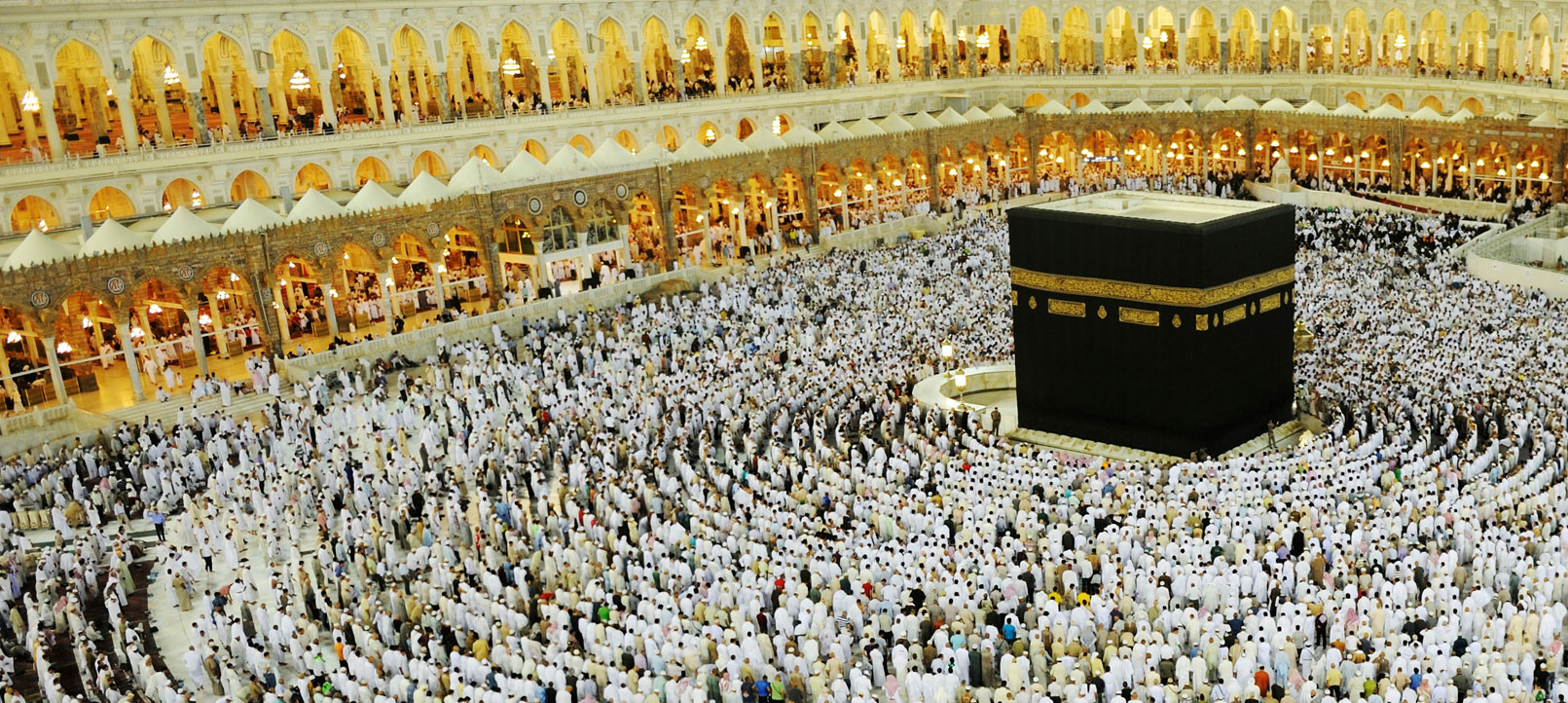
WHAT ARE HAJJ AND UMRAH?
In order to do anything in life, we need to know the following:
1) WHAT we are doing
2) WHY we are doing it
3) HOW we are going to do it
Going for Hajj is the “what”.
My questions to you are: Why are you going for Hajj? And how will you do it?
Before discussing Hajj and Umrah, one needs to know what these terms mean.
Umrah
Umrah is the “Minor Pilgrimage”. Linguistically (i.e. according to the Arabic language), it means to visit.
According to the Shariah (Islamic Law), it refers to specific actions performed at specific places, with the intention of worshipping Allah.
Hajj
Hajj is the “Major Pilgrimage”. Linguistically, it means to intend to do something or to go somewhere.
According to the Shariah, it means to go to Makkah to perform specific actions at a specific time of year, with the intention of worshipping Allah.
Overview of Hajj and Umrah
There are three types of Hajj: Tamattu, Qiraan and Ifraad. The difference between each type will be explained in a future chapter. For now, here’s a brief overview of Hajj At-Tamattu (the recommended type):
1) Do Umrah in Shawwaal, Dhul Qaddah or beginning of Dhul-Hijjah (i.e. the months of Hajj)
- Assume Ihraam for Umrah at the Meeqaat (both the terms “Ihraam” and “Meeqat” will be discussed later on in this series)

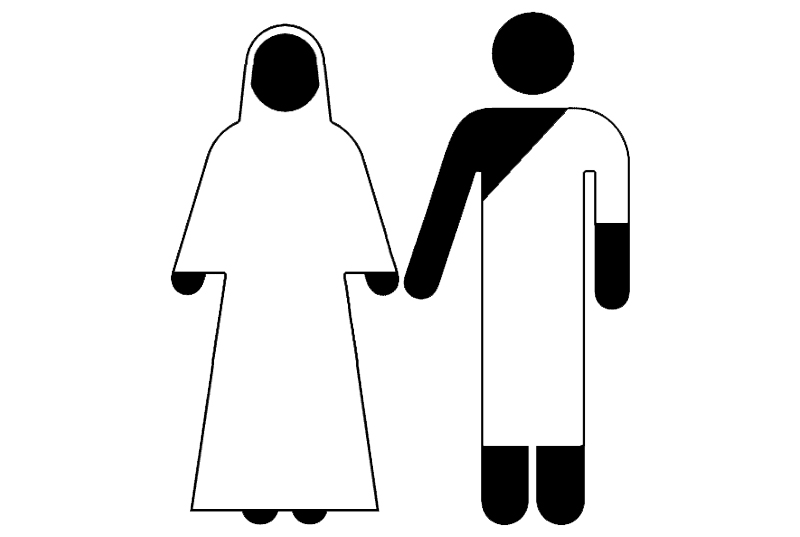
- Do Tawaf (circumambulation around the Kaabah)
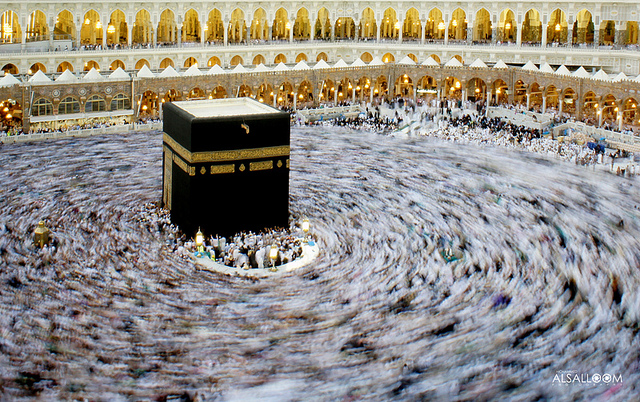
- Do Saee (go forth between the two mountains, Safa and Marwah)
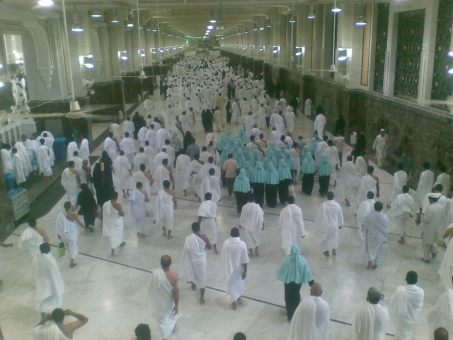
- Exit Ihraam
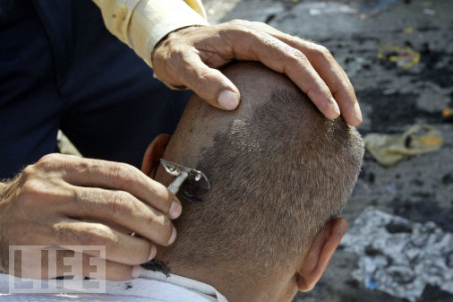
2) Assume Ihram for Hajj
8th of Dhul Hijjah– Go to Mina
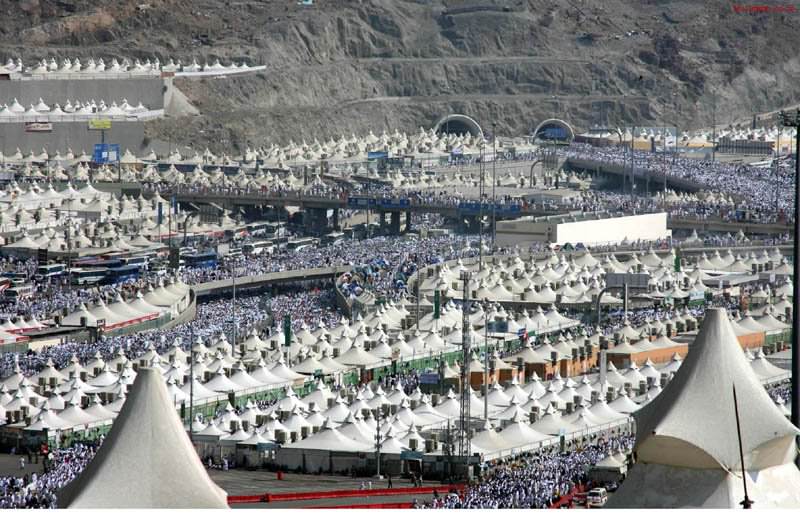
9th of Dhul Hijjah– Head to Arafah and then, after Maghrib (sunset) to Muzdalifah.
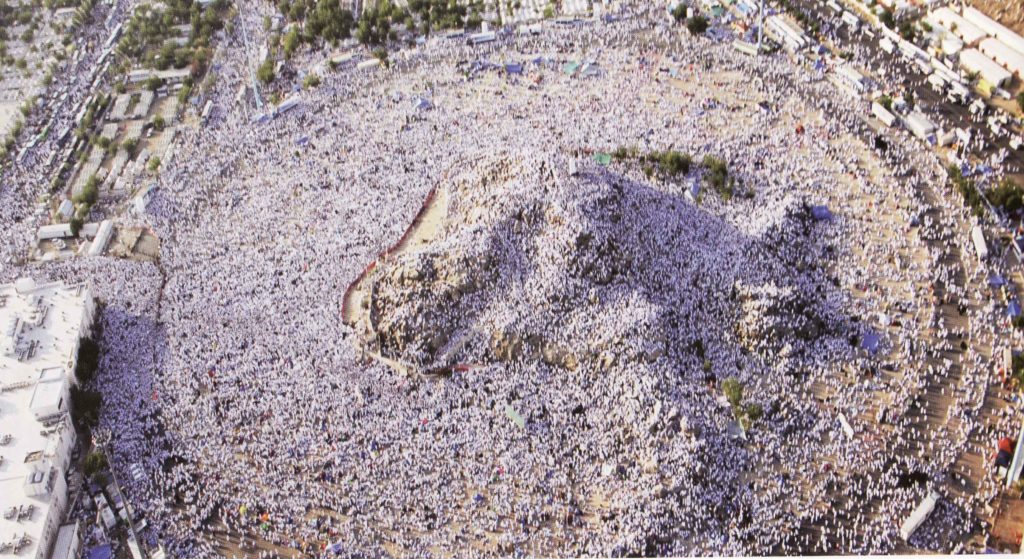
10th of Dhul Hijjah– Head to Mina for stoning the pillars and then to Makkah to do Tawaf, followed by Saee and then sacrificing the animal. After this, head back to Mina.
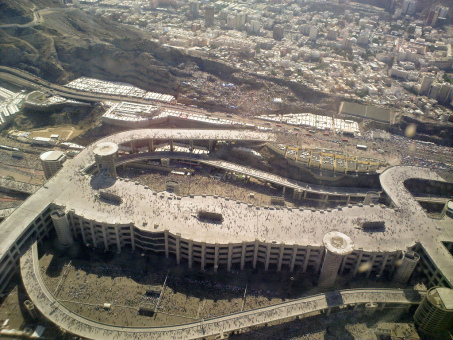
11th, 12th, 13th of Dhul Hijjah – Stay in Mina for these three days and do the stoning.
Before you leave Makkah, you need to do Tawaf Al-Widaa (The Farewell Tawaf).
All of these will be explained in more detail later on, so don’t worry if you didn’t understand a word! I simply put this here so that you realise that Hajj is composed of many acts, not just one or two.
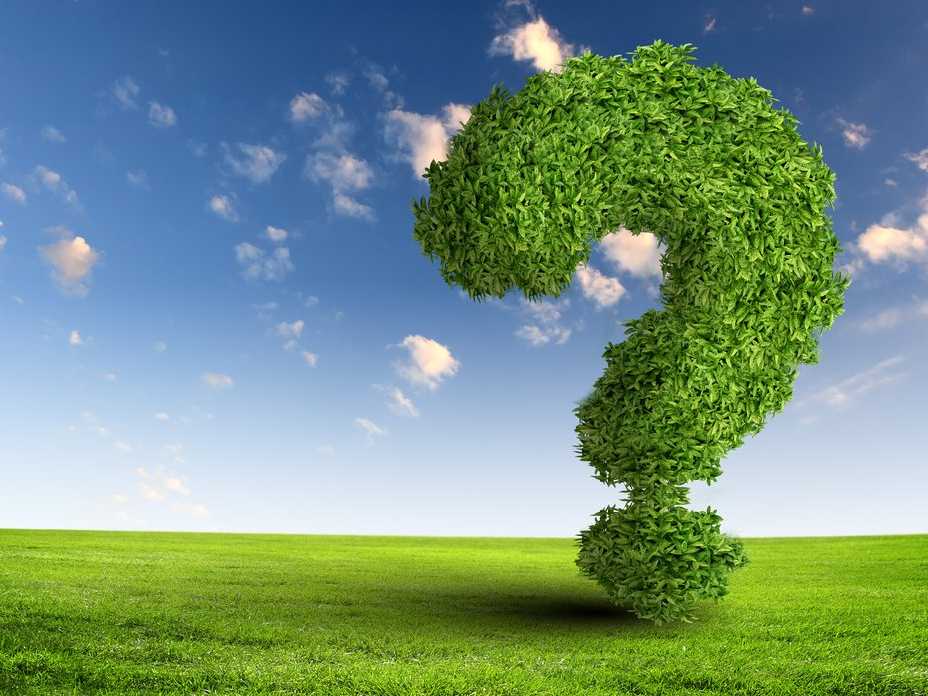
WHY ARE YOU GOING FOR HAJJ?
So, you want to go for Hajj? Amazing.
But why exactly do you want to go for Hajj?
Possible Reasons why you want to go to Hajj
1) You have no idea (Don’t worry, you’re not alone).
2) You heard it was a “great experience” (It is but that’s still a lousy reason to be making such a great journey for).
3) Your parents / spouse / children are dragging you along with them because they need someone to go with. (Oh dear…)
4) You want to “escape” from all your troubles and relax. (Okay, but are you planning to set up camp in Makkah all your life and never come back?)
5) Because Hajj is the 5th pillar of Islam and is therefore “important.” (Question: Do you apply the first four pillars of Islam?)
6) Because you want to become a better Muslim.
As you might have guessed, Answers 1-4 are not correct.
What about Nos. 5 and 6? Well, they’re not wrong. However, they mistake the means for the end.
Before I explain why they are not the correct answers, let me ask you the following:
1) What is the purpose of your life? Why were you created?
2) Is going for Hajj the purpose? Or is it a means to achieving that purpose?
The Purpose of Life
What IS the purpose of our lives?
As Allah was the one who created us, He is the only one who can tell us what we were created for:
وَمَا خَلَقْتُ الْجِنَّ وَالْإِنسَ إِلَّا لِيَعْبُدُونِ
“And I (Allah) created not the jinns and humans except they should worship Me (Alone).” [Surah Ad-Dhaariyaat (51) : 56]
قُلْ إِنَّ صَلَاتِي وَنُسُكِي وَمَحْيَايَ وَمَمَاتِي لِلَّـهِ رَبِّ الْعَالَمِينَ
Say: “Verily, my salaah (prayers), my sacrifice, my living, and my dying are for Allah, the Lord of the Alameen (mankind, jinns and all that exists).” [Surah Al-Anaam (6) : 162]
So, the purpose of our lives, according to the One who created us is that we worship Him alone. The reward for doing this is the attainment of Paradise.
Please note a few points regarding the above:
1) Allah does NOT need our worship, rather it is we who need Him.
وَمَن جَاهَدَ فَإِنَّمَا يُجَاهِدُ لِنَفْسِهِ ۚ إِنَّ اللَّـهَ لَغَنِيٌّ عَنِ الْعَالَمِينَ
“And whosoever strives, he strives only for himself. Verily, Allah is free of all wants from the Alameen.” [Surah Al-Ankabut (29) : 6]
2) Ibaadah (worship) does not just include prayer, fasting, going for Hajj, etc. Yes, these are the core acts of worship; however, ibaadah is not limited to that. Any halal act can be turned into an ibaadah by changing one’s intention. For example, one is allowed to get married simply because one desires to do so. However, if one does it with the intention of pleasing Allah, it turns into an act of worship.
3) How does one ultimately fulfill one’s purpose of life and attain Paradise?
This is done by applying Tawheed. Tawheed is to single out Allah in His Lordship, in His Worship and in His Names and Attributes.
We are all created to apply tawheed i.e. we are meant to worship the Creator alone and stop the worship of creation.
4) Do you really want Paradise? If so, you should understand that it is attained through righteous deeds (and the Mercy of Allah). It is NOT attained by merely wanting and daydreaming about it.
Tawheed is the main requirement to get into Paradise. Only the people of tawheed will be permitted to enter Paradise.
Hajj and the Purpose of Life
Everyone has a yearning for happiness. And this is natural as our final abode is meant to be Paradise.
Hajj is a means to an end. It is not an end in and of itself. What is the end? It is pleasing Allah and attaining Paradise.
It is important to remember this because many people get confused between the means and the end. In the reasons mentioned above, both No. 5 and No. 6 are means to pleasing Allah and attaining Paradise. They are not the end.
For example, Hajj does make you a better Muslim but you’re not going there just to achieve the means. (i.e. being a better Muslim). You should go there with the intention of worshipping Allah and getting granted Paradise. One of the results of Hajj should be to make you a better Muslim, which would make it easier to attain Paradise. However, it is not THE reason that you are going for Hajj.
Why is this so important to understand? Well, because what happens to many people is that they go to Hajj thinking that this is the goal. They come back and what happens? Absolutely nothing. Most of them are unable to continue with their acts of worship. Why? Because they didn’t realize that Hajj was a means, not the end.
Let me give you two simple analogies to help you understand:
1) The Petrol Station Analogy

You want to go somewhere. On the way to your destination, you pass by a petrol station in order to refuel your car and to buy some food (to refuel yourself).
Tell me: Is this petrol station your destination? No! It is simply a means. A means to what? A means for you to continue with your journey so that you are able to get to your destination.
The Petrol Station is this life. We are just travelers and this world is a temporary stop for us to get what we need to get us to the destination (which is Paradise).
عَنْ عَبْدِ اللَّهِ بْنِ عُمَرَ ـ رضى الله عنهما ـ قَالَ: أخَذ رسولُ اللهِ صلَّى اللهُ عليه وسلَّم بمَنكِبي فقال : كُنْ في الدنيا كأنك غريبٌ أو عابرُ سبيلٍ
Abdullah Ibn Umar (radiallahu anhu) said: “The Messenger of Allah (sallallahu alaihi wasallam) took me by the shoulder and said: ‘Be in this world as though you were a stranger or a wayfarer.’” [Sahih Al-Bukhari, Volume 8, Hadeeth No. 425]
Hajj and Ramadan in particular are also petrol pumps. They help to refuel our iman (faith) so that we can keep going on with our good deeds so that we attain Paradise.
We do not stop permanently at the petrol pump. We only stop permanently when we reach our destination.
2) The Elevator and the Staircase Analogy
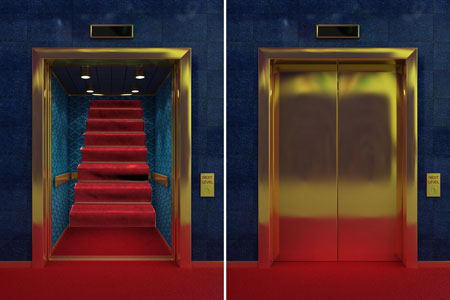
Suppose you met someone waiting for an elevator. The person tells you that he is desperate to get to the top floor of that building. Unfortunately, the elevator is not working at that time.
The person makes no attempt to take the stairs, preferring to wait for the elevator instead. What does this mean? It means that he is really not that desperate to get to the top. Had it really been that important to him, he would have taken the stairs for now, and would have used the elevator when it became available.
The top floor is attaining the Pleasure of Allah and Paradise. The elevator is Hajj and Ramadan. We use them to “get up” faster. The stairs are the other times of the year.
Yes, it’s a little harder to increase our iman (faith) and attain Paradise in those times but it can be done. It is much easier to increase our iman and attain Paradise during Hajj and Ramadan.
However, even after they are gone, we still need to keep trying to get to the top floor, because until we do, we have not attained our goal.
So, to summarise: You should go to Hajj in order to glorify, praise and please Allah. And after you come back, you need to continue doing that until you die. It’s as simple as that.

HOW ARE YOU GOING TO DO HAJJ?
How will you do Hajj?
Huh, you say, I mean, I’m just going to do what everybody else does, right?
Nope.
In order to understand how we’re going to do Hajj, we need to understand the 1st Pillar of Islam: The Shahaadataan.
The Meaning of the Shahaadataan
What is the Shahaadataan? It is the testimony of faith.
What does it mean? Many people translate it as “There is no god but Allah and Muhammad is His Messenger.”
This is not correct. The proper translation is “There is none worthy of worship except Allah and Muhammad is the Messenger of Allah.”
What’s the difference, you say?
Well, the first translation implies “There is no creator but Allah” which is true but believing in this alone is not enough to make one a Muslim. The pagan Arabs used to believe that Allah was the sole creator of the heavens and the earth but they were not considered Muslims.
Also, the meaning of “ilaah” is not creator.
Imam Ibn Rajab stated: “The word Ilaah means the One who is obeyed and not defied, out of one’s sense of awe and reverence, love, fear and hope, placing one’s trust and hope in Him, asking Him and supplicating to Him alone.”
As you can see, this word has a very deep meaning. The pagan Arabs did not do these things. For example, they did not supplicate to Allah alone, rather they supplicated to Him through their idols, which is what made them disbelievers.
Now, the Shahaadatan has two parts: The first part is “There is none worthy of worship except Allah” and the second part is “Muhammad is His Messenger.”
The first part reminds us WHY we need to do an act of worship. It is only done to seek the Face of Allah. So, when we read the importance and virtues (fadhail) of any act, we should remember the first part of the Shahaadataan. The importance and virtues will help us renew our intentions so that we can try to make sure that we are doing the act solely for the sake of Allah.
The second part tells us HOW we need to do that act (the fiqh). So, the only way to do any act that we want to do for the sake of Allah is to do it the way Prophet Muhammad (salallahu alaihi wasallam) did it.
How to do Hajj and Umrah
عَنِ جَابِر: يَقُولُ رَأَيْتُ النَّبِيَّ صلى الله عليه وسلم يَرْمِي عَلَى رَاحِلَتِهِ يَوْمَ النَّحْرِ وَيَقُولُ : لِتَأْخُذُوا مَنَاسِكَكُمْ فَإِنِّي لاَ أَدْرِي لَعَلِّي لاَ أَحُجُّ بَعْدَ حَجَّتِي هَذِهِ
Jaabir (radiallahu anhu) reported: I saw Allah’s Messenger (sallallahu alaihi wasallam) flinging pebbles while riding his camel on the Day of Nahr, and he was saying: “Learn your rituals (by seeing me performing them), for I do not know whether I will be performing Hajj after this Hajj of mine.” [Sahih Muslim, Hadeeth No. 2967]
عَنِ جَابِر عن النَّبِيّ صلى الله عليه وسلم: يا أيها الناس خذوا عني مناسككم ، فإني لا أدري لعلي لا أحج بعد عامي هذا
Jaabir (radiallahu anhu) narrated: The Prophet (sallallahu alaihi wasallam) also said: “O people! Take from me your Manasik (rites of Hajj), for I do not know whether I will be performing Hajj after this year.” [Sahih Al-Jaami, Hadeeth No. 7882]
So, if we go for Hajj, we need: 1) To do it for the sake of Allah alone and 2) To do it the way the Prophet (sallallahu alaihi wasallam) did it.
Therefore, it is essential to make sure that we do all your rites of Hajj and Umrah (and all our acts of worship really) the way the Prophet (sallallahu alaihi wasallam) did them.
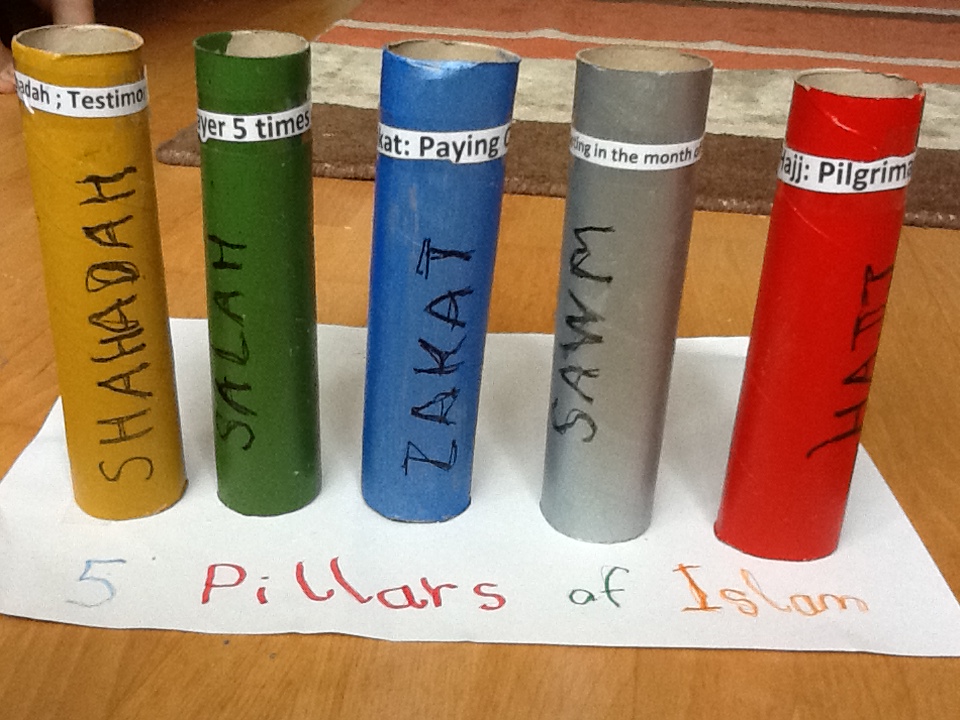
HAJJ AND THE SHAHAADATAAN
Hajj, like all the other acts of worship, is connected to the Shahaadataan. Understanding what this statement stands for, will give a person a deeper and clearer understanding of what Hajj is and how it is performed.
1. The Shahaadataan has pillars, conditions and virtues
In order to truly understand this statement, we need to study its pillars and conditions and also read about its virtues.
The following resources are a good starting point for those who want to learn more:
The Shahaadah: Testimony of Faith by Dr. Saleh As-Saleh (rahimahullah) [Note: Dr. Saleh also has an audio series on this topic which you may download here.]
The Conditions of the Shahaadah by Jamaal Zarabozo
Conditions of Laa Ilaaha Illallah by UNIS (based on a book by Shaikh Ubaid Al-Jaabiree)
The Declaration of Faith by Shaikh Saleh Al-Fawzaan
The Tafseer of the Statement of Tawheed by Shaikh Rabee Al-Madkhali
More resources may be found here.
2. The Shahaadataan is the benchmark in the acceptance of deeds
How does someone know whether a deed may be acceptable in the sight of Allah? It’s simple: They just need to refer it back to the Shahaadaataan. This statement is actually comprised of two testimonies:
- The declaration that none has the right to be worshipped except Allah
- That Muhammad (sallallahu alaihi wasallam) is the Messenger of Allah
So for any deed to be accepted, it has to fulfill the two conditions mentioned in the Shahaadataan:
1.That it be done solely for the Pleasure of Allah
عن عُمَرَ بْنَ الْخَطَّابِ ـ رضى الله عنه قَالَ سَمِعْتُ رَسُولَ اللَّهِ صلى الله عليه وسلم يَقُولُ :إِنَّمَا الأَعْمَالُ بِالنِّيَّاتِ، وَإِنَّمَا لِكُلِّ امْرِئٍ مَا نَوَى، فَمَنْ كَانَتْ هِجْرَتُهُ إِلَى دُنْيَا يُصِيبُهَا أَوْ إِلَى امْرَأَةٍ يَنْكِحُهَا فَهِجْرَتُهُ إِلَى مَا هَاجَرَ إِلَيْهِ
Umar ibn Al-Khattab (radiallahu anhu) narrated: I heard Allah’s Messenger (sallallahu alaihi wasallam) saying, “The reward of deeds depends upon the intentions and every person will get the reward according to what he has intended. So whoever emigrated for worldly benefits or for a woman to marry, his emigration was for what he emigrated for.” [Sahih Al-Bukhari, Volume 1, Hadeeth No. 1]
2. That it is in accordance with the Sunnah (way) of Prophet Muhammad (sallallahu alaihi wasallam)
عن عائشة رضي الله عنها قالت: قال رسول الله صلى الله عليه وسلم :من عمل عملا ليس عليه أمرنا فهو رد
Aishah (radiallahu anha) said: The Messenger of Allah (sallallahu alaihi wasallam) said, “He who does something contrary to our way (i.e., Islam) will have it rejected.” [Sahih Muslim, Hadeeth No. 4267]
Fudhayl Ibn Iyaad (rahimahullah), a scholar of Islam, said: “Indeed if an action is done sincerely but it is not correct, it will not be accepted. And if the action is done correctly, but it is not done with sincerity, then it is not accepted until it is done sincerely and correctly. So sincerity means that it is done for Allah and correct means that it must be in accordance with the Sunnah.”
How does this relate to Hajj? Well, it’s simple. If someone truly wants their Hajj to be accepted by Allah, then they need to make sure that they do it both sincerely AND correctly.
Many people believe it is about quantity of deeds but in reality it is more about the QUALITY of deeds. As someone I know stated, the people of the past turned their habits into acts of worship but we have turned our acts of worship into habits. Part of this is because we don’t seem to be focused on the quality of these actions.
Allah says:
الَّذِي خَلَقَ الْمَوْتَ وَالْحَيَاةَ لِيَبْلُوَكُمْ أَيُّكُمْ أَحْسَنُ عَمَلًا ۚ وَهُوَ الْعَزِيزُ الْغَفُورُ
“Who has created death and life, that He may test you which of you is best in deed. And He is the All-Mighty, the Oft-Forgiving.” [Surah Al-Mulk (67) : 2]
Allah says “Ahsanu Amalaa” (best in deeds) and not “Aktharu Amalaa” (most in deeds), meaning that quality is what is needed. Of course, the more a person does, the more reward they will get, so a person needs to do as much as they can without compromising on the quality of the actions.
3. The Shahaadaatan shows us that we need to follow the Sunnah and not innovate
As mentioned above, the second part of the Shahaadataan tells us to follow the Sunnah.
Allah has repeatedly commanded us to obey the Messenger (sallallahu alaihi wasallam) and follow his Sunnah:
يَا أَيُّهَا الَّذِينَ آمَنُوا أَطِيعُوا اللَّـهَ وَأَطِيعُوا الرَّسُولَ وَأُولِي الْأَمْرِ مِنكُمْ ۖ فَإِن تَنَازَعْتُمْ فِي شَيْءٍ فَرُدُّوهُ إِلَى اللَّـهِ وَالرَّسُولِ إِن كُنتُمْ تُؤْمِنُونَ بِاللَّـهِ وَالْيَوْمِ الْآخِرِ ۚ ذَٰلِكَ خَيْرٌ وَأَحْسَنُ تَأْوِيلًا
“O you who believe! Obey Allah and obey the Messenger (Muhammad), and those of you (Muslims) who are in authority. (And) if you differ in anything amongst yourselves, refer it to Allah and His Messenger, if you believe in Allah and in the Last Day. That is better and more suitable for final determination.” [Surah An-Nisaa (4) : 59]
مَّن يُطِعِ الرَّسُولَ فَقَدْ أَطَاعَ اللَّـهَ ۖ وَمَن تَوَلَّىٰ فَمَا أَرْسَلْنَاكَ عَلَيْهِمْ حَفِيظًا
“He who obeys the Messenger (Muhammad), has indeed obeyed Allah, but he who turns away, then we have not sent you (O Muhammad) as a watcher over them.” [Surah An-Nisaa (4):80]
وَمَن يُشَاقِقِ الرَّسُولَ مِن بَعْدِ مَا تَبَيَّنَ لَهُ الْهُدَىٰ وَيَتَّبِعْ غَيْرَ سَبِيلِ الْمُؤْمِنِينَ نُوَلِّهِ مَا تَوَلَّىٰ وَنُصْلِهِ جَهَنَّمَ ۖ وَسَاءَتْ مَصِيرًا
“And whoever contradicts and opposes the Messenger (Muhammad) after the right path has been shown clearly to him, and follows other than the believers’ way. We shall keep him in the path he has chosen, and burn him in Hell – what an evil destination.” [Surah An-Nisaa (4) : 115]
وَمَن يُطِعِ اللَّـهَ وَالرَّسُولَ فَأُولَـٰئِكَ مَعَ الَّذِينَ أَنْعَمَ اللَّـهُ عَلَيْهِم مِّنَ النَّبِيِّينَ وَالصِّدِّيقِينَ وَالشُّهَدَاءِ وَالصَّالِحِينَ ۚ وَحَسُنَ أُولَـٰئِكَ رَفِيقًا
“And whosoever obeys Allah and the Messenger (Muhammad), then they will be in the company of those on whom Allah has bestowed His Grace, of the Prophets, the Siddiqoon (those followers of the Prophets who were first and foremost to believe in them, like Abu Bakr As-Siddiq), the martyrs, and the righteous. And how excellent these companions are!” [Surah An-Nisaa (4) : 69]
لَّقَدْ كَانَ لَكُمْ فِي رَسُولِ اللَّـهِ أُسْوَةٌ حَسَنَةٌ لِّمَن كَانَ يَرْجُو اللَّـهَ وَالْيَوْمَ الْآخِرَ وَذَكَرَ اللَّـهَ كَثِيرًا
“Indeed in the Messenger of Allah (Muhammad) you have a good example to follow for him who hopes in (the Meeting with) Allah and the Last Day and remembers Allah much.” [Surah Al-Ahzab (33) : 21]
قُلْ إِن كُنتُمْ تُحِبُّونَ اللَّـهَ فَاتَّبِعُونِي يُحْبِبْكُمُ اللَّـهُ وَيَغْفِرْ لَكُمْ ذُنُوبَكُمْ ۗ وَاللَّـهُ غَفُورٌ رَّحِيمٌ
“Say (O Muhammad): “If you (really) love Allah then follow me (i.e. accept Islamic Monotheism, follow the Quran and the Sunnah), Allah will love you and forgive you of your sins. And Allah is Oft-Forgiving, Most Merciful.”” [Surah Aal-Imraan (3) : 31]
There are many people today who claim to love Allah so this ayah (verse) is a challenge to them to prove it. How?
Well, you need to do everything for the sake of Allah. You love Him, therefore you try to gain His love. He has revealed to the Messenger (sallallahu alaihi wasallam) what He loves and what he does not love. Therefore, we need to follow the Messenger’s (sallallahu alaihi wasallam) way so that we do that which Allah loves and we keep away from that which He does not love. This is how we gain His love. Therefore, the one who truly loves Allah, will follow His Messenger (sallallahu alaihi wasallam) and not innovate in the religion.
The Prophet (sallallahu alaihi wasallam) also warned us of the dangers of bidah (innovations) in the religion:
عَنْ جَابِرِ بْنِ عَبْدِ اللَّهِ، قَالَ كَانَ رَسُولُ اللَّهِ صلى الله عليه وسلم إِذَا خَطَبَ احْمَرَّتْ عَيْنَاهُ وَعَلاَ صَوْتُهُ وَاشْتَدَّ غَضَبُهُ حَتَّى كَأَنَّهُ مُنْذِرُ جَيْشٍ يَقُولُ : صَبَّحَكُمْ وَمَسَّاكُمْ . وَيَقُولُ : بُعِثْتُ أَنَا وَالسَّاعَةَ كَهَاتَيْنِ . وَيَقْرُنُ بَيْنَ إِصْبَعَيْهِ السَّبَّابَةِ وَالْوُسْطَى وَيَقُولُ: أَمَّا بَعْدُ فَإِنَّ خَيْرَ الْحَدِيثِ كِتَابُ اللَّهِ وَخَيْرُ الْهُدَى هُدَى مُحَمَّدٍ وَشَرُّ الأُمُورِ مُحْدَثَاتُهَا وَكُلُّ بِدْعَةٍ ضَلاَلَةٌ . ثُمَّ يَقُولُ :أَنَا أَوْلَى بِكُلِّ مُؤْمِنٍ مِنْ نَفْسِهِ مَنْ تَرَكَ مَالاً فَلأَهْلِهِ وَمَنْ تَرَكَ دَيْنًا أَوْ ضَيَاعًا فَإِلَىَّ وَعَلَىَّ
Jaabir ibn Abdullah (radiallahu anhuma) said: When Allah’s Messenger (sallallahu alaihi wasallam) delivered the sermon, his eyes became red, his voice rose, and his anger increased so that he was like one giving a warning against the enemy and saying: “The enemy has made a morning attack on you and in the evening too.” He would also say: “The Last Hour and I have been sent like these two.” And he would join his forefinger and middle finger; and would further say: “The best of the speech is embodied in the Book of Allah, and the best of the guidance is the guidance given by Muhammad. And the most evil affairs are their innovations; and every innovation is error.” He would further say:, I am more dear to a Muslim even than his self; and he who left behind property that is for his family; and he who dies under debt or leaves children (in helplessness), the responsibility (of paying his debt and bringing up his children) lies on me.” [Sahih Muslim, Hadeeth No. 1885]
عن يَحْيَى بْنُ أَبِي الْمُطَاعِ، قَالَ سَمِعْتُ الْعِرْبَاضَ بْنَ سَارِيَةَ، يَقُولُ قَامَ فِينَا رَسُولُ اللَّهِ ـ صلى الله عليه وسلم ـ ذَاتَ يَوْمٍ فَوَعَظَنَا مَوْعِظَةً بَلِيغَةً وَجِلَتْ مِنْهَا الْقُلُوبُ وَذَرَفَتْ مِنْهَا الْعُيُونُ فَقِيلَ يَا رَسُولَ اللَّهِ وَعَظْتَنَا مَوْعِظَةَ مُوَدِّعٍ فَاعْهَدْ إِلَيْنَا بِعَهْدٍ فَقَالَ :عَلَيْكُمْ بِتَقْوَى اللَّهِ وَالسَّمْعِ وَالطَّاعَةِ وَإِنْ عَبْدًا حَبَشِيًّا وَسَتَرَوْنَ مِنْ بَعْدِي اخْتِلاَفًا شَدِيدًا فَعَلَيْكُمْ بِسُنَّتِي وَسُنَّةِ الْخُلَفَاءِ الرَّاشِدِينَ الْمَهْدِيِّينَ عَضُّوا عَلَيْهَا بِالنَّوَاجِذِ وَإِيَّاكُمْ وَالأُمُورَ الْمُحْدَثَاتِ فَإِنَّ كُلَّ بِدْعَةٍ ضَلاَلَةٌ
Yahya bin Abu Muta said: I heard Irbad ibn Saariyah (radiallahu anhu) say: ‘One day, the Messenger of Allah (sallallahu alaihi wasallam) stood up among us and delivered a deeply moving speech to us that melted our hearts and caused our eyes to overflow with tears. It was said to him: ‘O Messenger of Allah, you have delivered a speech of farewell, so enjoin something upon us.’ He said: ‘I urge you to fear Allah, and to listen and obey, even if (your leader) is an Abyssinian slave. After I am gone, you will see great conflict. I urge you to adhere to my Sunnah and the path of the Rightly-Guided Caliphs, and cling stubbornly to it. And beware of newly-invented matters, for every innovation is a going astray.’” [Sunan Ibn Majah, Hadeeth No. 42. Graded “sahih” (authentic) by Al-Albani.]
Here are some articles about innovation for those who wish to know more:
What is Bidah? by Call to Islam
Bidah (Innovation) by Islamweb
Every Religious Innovation is a Means of Misguidance by Shaikh Abdurrahmaan al-Sheha
Interestingly enough, with regards to prayer and Hajj, there are specific ahadeeth which command us to do them the way that the Prophet (sallallahu alaihi wasallam) did them.
عن مَالِكٌ، أَتَيْنَا إِلَى النَّبِيِّ صلى الله عليه وسلم وَنَحْنُ شَبَبَةٌ مُتَقَارِبُونَ، فَأَقَمْنَا عِنْدَهُ عِشْرِينَ يَوْمًا وَلَيْلَةً، وَكَانَ رَسُولُ اللَّهِ صلى الله عليه وسلم رَحِيمًا رَفِيقًا، فَلَمَّا ظَنَّ أَنَّا قَدِ اشْتَهَيْنَا أَهْلَنَا أَوْ قَدِ اشْتَقْنَا سَأَلَنَا عَمَّنْ تَرَكْنَا بَعْدَنَا فَأَخْبَرْنَاهُ قَالَ : ارْجِعُوا إِلَى أَهْلِيكُمْ فَأَقِيمُوا فِيهِمْ وَعَلِّمُوهُمْ وَمُرُوهُمْ ـ وَذَكَرَ أَشْيَاءَ أَحْفَظُهَا أَوْ لاَ أَحْفَظُهَا ـ وَصَلُّوا كَمَا رَأَيْتُمُونِي أُصَلِّي، فَإِذَا حَضَرَتِ الصَّلاَةُ فَلْيُؤَذِّنْ لَكُمْ أَحَدُكُمْ وَلْيَؤُمَّكُمْ أَكْبَرُكُمْ
Narrated Malik (radiallahu anhu): We came to the Prophet (sallallahu alaihi wasallam) and stayed with him for twenty days and nights. We were all young and of about the same age. The Prophet (sallallahu alaihi wasallam)) was very kind and merciful. When he realized our longing for our families, he asked about our homes and the people there and we told him. Then he asked us to go back to our families and stay with them and teach them (the religion) and to order them to do good things. He also mentioned some other things which I have (remembered or) forgotten. The Prophet (sallallahu alaihi wasallam)) then added, “Pray as you have seen me praying and when it is the time for the prayer one of you should pronounce the Adhan and the oldest of you should lead the prayer.” [Sahih Al-Bukhari, Volume 1, Hadeeth No. 604]
عَنِ جَابِر عن النَّبِيّ صلى الله عليه وسلم: يا أيها الناس خذوا عني مناسككم ، فإني لا أدري لعلي لا أحج بعد عامي هذا
Jaabir (radiallahu anhu) narrated: The Prophet (sallallahu alaihi wasallam) also said: “O people! Take from me your Manasik (rites of Hajj), for I do not know whether I will be performing Hajj after this year.” [Sahih Al-Jaami, Hadeeth No. 7882]
We don’t find such ahadeeth for zakaah or fasting, for instance. So why were prayer and Hajj singled out and emphasised? I think that the answer may lie in the fact that, in today’s time, people innovate a lot in prayer and Hajj, whereas they really do not innovate that much with regards to zakaah and fasting. Perhaps this is why the Prophet (sallallahu alaihi wasallam) emphasized prayer and Hajj. This is just a theory of mine and Allah knows better if it is correct or not.
As you can see from all the above proofs, we should avoid innovation in the religion at all costs. And what need is there to innovate anyway? After all, Allah informed us that the religion was complete so there is no need for any addition.
الْيَوْمَ أَكْمَلْتُ لَكُمْ دِينَكُمْ وَأَتْمَمْتُ عَلَيْكُمْ نِعْمَتِي وَرَضِيتُ لَكُمُ الْإِسْلَامَ دِينًا
“This day, I have perfected your religion for you, completed My Favour upon you, and have chosen for you Islam as your religion.” [Surah Al-Maaidah (5):3]
[Note: The actual word used in the Quran is “deen” which is a way of life and is a far more comprehensive word than religion.]
Interestingly enough, this ayah (verse) was revealed in Hajj Al-Widaa (The Farewell Pilgrimage). So when you go for Hajj, remember this ayah and remember that you don’t need to add anything to this religion because it is perfect as it is!
The following two articles give an insight into some of the innovations that have crept into Hajj:
Innovations of Hajj and Umrah and Visiting Madinah by Shaikh Nasiruddin Al-Albaani (rahimahullah)
Innovations during Hajj by Shaikh Mashhoor Hasan Salmaan
Newly Innovated Affairs in Hajj by Shaikh Muhammad Baazmool
Remember, if your Hajj guide or Shaikh tells you about an act of Hajj, be sure to ask them for the proof (in a good manner, of course).
4. The Shahaadataan shows us how to be moderate and not extreme
Another thing that the Shahaadataan shows us is that we need to be moderate and not extreme. How? By following the Messenger (sallallahu alaihi wasallam).
Many people have a confusion about extremism. They seem to think that trying to follow Islam in totality is extremism! Subhan Allah, how can this be extremism when Allah Himself has ordered us to do this?
يَا أَيُّهَا الَّذِينَ آمَنُوا ادْخُلُوا فِي السِّلْمِ كَافَّةً وَلَا تَتَّبِعُوا خُطُوَاتِ الشَّيْطَانِ ۚ إِنَّهُ لَكُمْ عَدُوٌّ مُّبِينٌ
“O you who believe! Enter perfectly in Islam (by obeying all the rules and regulations of the Islamic religion) and follow not the footsteps of Shaytaan (Satan). Verily! He is to you a plain enemy.” [Surah Al-Baqarah (2) : 208]
Rather extremism means one of two things: 1) Trying to do more than the Prophet (sallallahu alaihi wasallam) or 2) Being lenient in what was commanded
So for example, if a person does not pray five times a day, he is extreme. Another person who spends the day just praying and not doing anything else is ALSO extreme. Both of them are not following the Sunnah.
The Prophet (sallallahu alaihi wasallam) warned us against both types of extremism:
عَنْ أَبِي هُرَيْرَةَ، عَنِ النَّبِيِّ صلى الله عليه وسلم قَالَ : إِنَّ الدِّينَ يُسْرٌ، وَلَنْ يُشَادَّ الدِّينَ أَحَدٌ إِلاَّ غَلَبَهُ، فَسَدِّدُوا وَقَارِبُوا وَأَبْشِرُوا، وَاسْتَعِينُوا بِالْغَدْوَةِ وَالرَّوْحَةِ وَشَىْءٍ مِنَ الدُّلْجَةِ
Narrated Abu Hurairah (radiallahu anhu): The Prophet (sallallahu alaihi wasallam) said, “The religion is very easy and whoever overburdens himself in his religion will not be able to continue in that way. So you should not be extremists, but try to be near to perfection and receive the good tidings that you will be rewarded; and gain strength by worshipping in the mornings, the afternoons, and during the last hours of the nights.” [Sahih Al-Bukhari, Volume 1, Hadith No. 38]
So, in Hajj, one should strive to do as the Prophet (sallallahu alaihi wasallam) did, without doing less or more. So for example, in the Day of Arafah (9th Dhul Hijjah), the Prophet (sallallahu alaihi wasallam) joined Dhuhr and Asr and shortened both to two rakahs. He also joined Maghrib and Isha and shortened the latter to two rakahs. This is how a person should pray when in Arafah and Muzdalifah.
Unfortunately, some people don’t pray or else sleepwalk through it whilst others decide to pray all the prayers in full without joining because they mistakenly believe that it is “better”. On the contrary, what is better is following the Sunnah, so we need to make sure that we follow the Sunnah at all times.

HAJJ: THE BEST TEST
Hajj is a test. In fact, it is the best test.
In order to understand this, one must first realise that life itself is a test. Allah says:
أَحَسِبَ النَّاسُ أَن يُتْرَكُوا أَن يَقُولُوا آمَنَّا وَهُمْ لَا يُفْتَنُونَ
وَلَقَدْ فَتَنَّا الَّذِينَ مِن قَبْلِهِمْ ۖ فَلَيَعْلَمَنَّ اللَّـهُ الَّذِينَ صَدَقُوا وَلَيَعْلَمَنَّ الْكَاذِبِينَ
“Do people think that they will be left alone because they say: “We believe,” and will not be tested.And We indeed tested those who were before them. And Allah will certainly make (it) known (the truth of) those who are true, and will certainly make (it) known (the falsehood of) those who are liars, (although Allah knows all that before putting them to test).” [Surah Al-Ankabut (29) : 2-3]
How are we tested? Well, there are different types of tests. The whole of Surah Al-Ankabut is actually about this topic. This article discusses this issue.
Basically, we were created to worship Allah and so we are tested with commands and prohibitions to prove ourselves. Allah knows the results of these tests already. The answer is for us, so that we can’t say that we were innocent!
Let’s look at the latter four pillars of Islam. Prayer and fasting are acts of worship using one’s body. However, prayer requires us to DO something (i.e. standing, bowing, recitation, etc.), whereas fasting requires us to STOP doing something (i.e. eating, drinking and sexual intercourse with one’s spouse). So, in this way, they both test our bodies in different ways.
Zakaah (obligatory charity,) on the other hand, is an act of worship using one’s wealth.
What about Hajj? Well, it is a combination of all three. We need to use both our bodies and our wealth and this is why one of the conditions of Hajj is that a person is physically and financially sound. A poor or ill person is not obliged to do Hajj.
In Hajj, we use our wealth to go for Hajj to begin with and to pay for the haadi (sacrificial animal). We use our bodies to do acts like tawaf, saee, stoning the jamraat, etc. Also, during ihraam, we stop ourselves from many things like cutting nails, cutting hair, etc.
So, in this way, Hajj tests us from every perspective. Therefore, it really is the best test!
[Here’s Part 2.]
